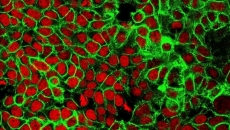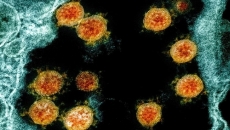Photo courtesy of IStock.
Caffeine, polyphenols, and other natural products found in coffee may help reduce the severity of non-alcoholic fatty liver disease (NAFLD) among overweight people with type 2 diabetes (T2D), a new study has shown.
NAFLD is a collective term for liver disorders caused by a build-up of fat in the liver. These can lead to liver fibrosis, which can progress to cirrhosis (scarring of the liver) and liver cancer, according to a study by the Portugal-based University of Coimbra.
The main cause of NAFLD is not excessive alcohol consumption, but rather an unhealthy lifestyle with little physical activity and a high-calorie diet.
"Due to changes in modern diet and lifestyle, there is an increase in obesity rates and incidence of both T2D and NAFLD, which can ultimately develop into more severe and irreversible conditions, burdening healthcare systems," said the corresponding author of the study, John Griffith Jones, PhD, Senior Researcher at the University of Coimbra, Portugal.
"Our research is the first to observe that higher cumulative amounts of both caffeine and non-caffeine metabolites in urine are associated with a reduced severity of NAFLD in overweight people with T2D," he added.
In the study, participants who consumed more coffee had healthier livers, but subjects who consumed more caffeine were less likely to develop liver fibrosis, whereas patients who consumed more non-caffeine coffee components had a lower fatty liver index score.
The study suggests that for overweight type 2 diabetes patients, a higher intake of coffee is associated with less severe NAFLD.
Additionally, the study cited that other coffee components, including polyphenols, reduce oxidative stress in the liver, in turn reducing the risk of fibrosis as well as improving glucose homeostasis in both healthy and overweight subjects.
All these factors may also alleviate the severity of T2D, the study mentioned.






